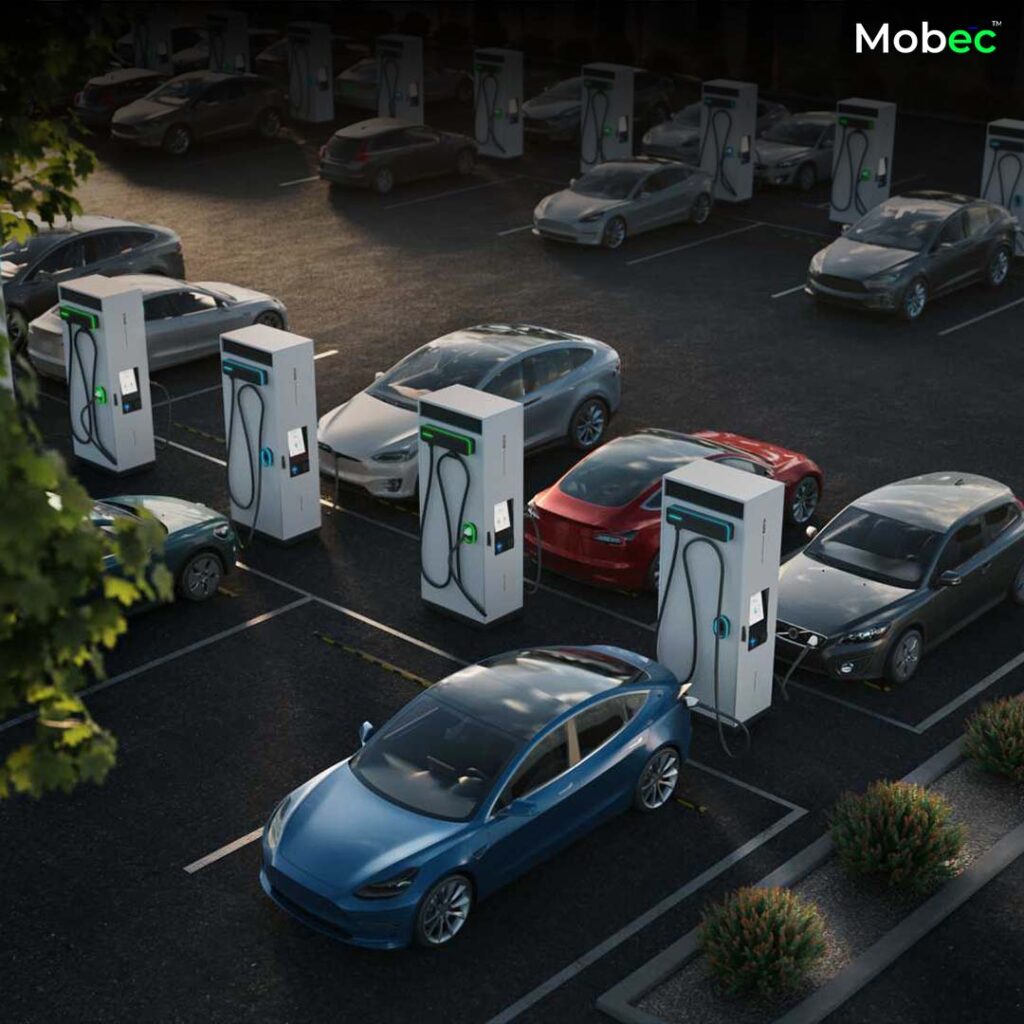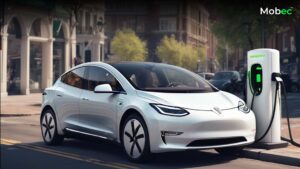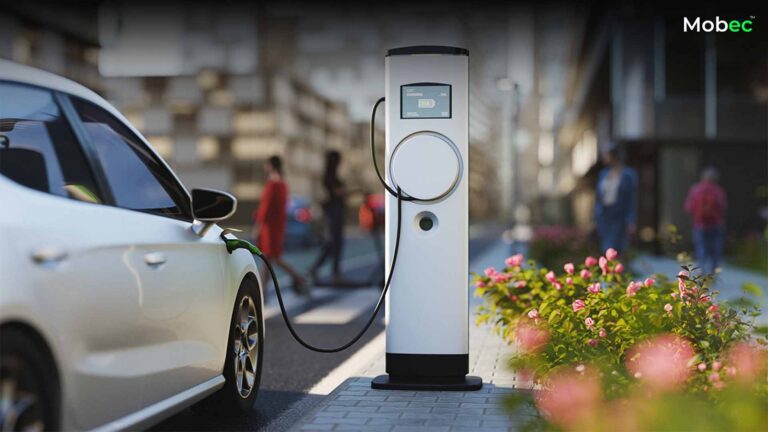Electric vehicles (EVs) have emerged as a viable solution to combat climate change and reduce carbon emissions in the era of sustainable transportation. As the adoption of EVs continues to rise, it has become imperative to develop efficient and specialized charging stations to ensure the seamless integration and widespread acceptance of these vehicles. This blog aims to explore the different types of charging stations designed specifically for electric vehicles. It sheds light on their functionalities, benefits, and their role in shaping sustainable mobility’s future.
Understanding the Importance of Charging Stations for Electric Vehicles:

Charging stations for electric vehicles are pivotal in establishing a robust and accessible infrastructure to support the growing demand for EVs. They serve as the lifeline for electric vehicles, providing the necessary power to recharge their batteries and enabling users to embark on their journeys confidently. The availability of diverse charging solutions tailored to meet the unique requirements of different EV models contributes significantly to the convenience and practicality of owning an electric vehicle. Understanding the nuances of different electric vehicle supply equipment is crucial in catering to the diverse needs of electric vehicle owners and fostering a sustainable transportation ecosystem.
Exploring Various Types of Charging Stations for Electric Vehicles:

1. Level 1 Charging Stations:
Level 1 charging stations are the most basic charging infrastructure designed for electric vehicles. These stations utilize a standard 120-volt AC plug and are typically used for residential charging. Although they provide the slowest charging rate, they are convenient for overnight charging, especially for EV owners with access to a dedicated parking space near their residence. Level 1 charging stations are cost-effective and require minimal installation efforts, making them an accessible option for individuals transitioning to electric vehicles.
2. Level 2 Charging Stations:
Level 2 charging stations offer a significant improvement in charging speed compared to Level 1 stations. These stations utilize a 240-volt AC plug and are commonly installed in residential settings, workplaces, and public locations. Level 2 charging stations are ideal for individuals seeking faster charging times without needing high-voltage charging solutions. They are suitable for overnight charging and can provide a full charge to an electric vehicle within a few hours, depending on the battery capacity. The versatility and moderate installation costs of Level 2 charging stations make them a popular choice among electric vehicle owners.
3. DC Fast Charging Stations:
DC fast charging stations are designed to provide rapid charging solutions for electric vehicles, significantly reducing the charging time compared to Level 1 and Level 2 stations. These stations utilize direct current (DC) power and can charge an electric vehicle to 80% capacity in a relatively short time, typically 20 to 30 minutes. DC fast charging stations are commonly found along highways, major travel routes, and commercial hubs, catering to long-distance travellers and individuals requiring quick charging solutions. The high-power output and compatibility with various EV models make DC fast charging stations a crucial component of the public charging infrastructure.
4. Tesla Superchargers:
Tesla Superchargers are a specialized charging station network designed exclusively for electric vehicles. These stations offer high-power charging capabilities, enabling Tesla owners to recharge their vehicles quickly and efficiently. Tesla Superchargers utilize a proprietary charging protocol and are strategically located along popular travel routes, enhancing the convenience and accessibility of long-distance travel for Tesla owners. The seamless integration with Tesla’s network and exclusive features such as over-the-air updates and remote monitoring contribute to the exceptional charging experience Tesla Superchargers offer.
5. Wireless Charging Stations:
Wireless charging stations represent the next frontier in charging technology, eliminating the need for physical cable connections between the charging infrastructure and the electric vehicle. These stations utilize inductive charging technology, allowing electric vehicles to charge by simply parking over designated charging pads or plates. Wireless electric vehicle supply equipment offer a convenient and hassle-free charging experience, reducing the complexities associated with traditional charging solutions. Despite the current limitations in charging efficiency and cost, ongoing research and development in wireless charging technology promise to revolutionise the charging infrastructure for electric vehicles shortly.
The Future of Charging Stations for Electric Vehicles:

The future of charging stations for electric vehicles is poised for significant advancements, driven by continuous innovation and technological breakthroughs. With smart charging solutions, renewable energy sources, and enhanced battery technologies, charging stations are expected to become more efficient, sustainable, and accessible. The development of ultra-fast charging solutions, the standardization of charging protocols, and the expansion of charging networks across urban and rural regions will play a crucial role in facilitating the widespread adoption of electric vehicles. Furthermore, integrating artificial intelligence and Internet of Things (IoT) capabilities will enable electric vehicle supply equipment to adapt to the evolving needs of electric vehicle owners, promoting a seamless and interconnected charging ecosystem.
Conclusion:
The diverse range of charging stations specifically designed for electric vehicles underscores the rapid evolution and transformation of the sustainable transportation landscape. From basic Level 1 electric vehicle supply equipment to advanced wireless charging solutions, each charging infrastructure caters to electric vehicle owners’ unique requirements and preferences. As the world embraces a future powered by clean energy and sustainable mobility, developing an inclusive and robust charging infrastructure network remains instrumental in fostering the widespread adoption of electric vehicles. By embracing technological advancements, promoting interoperability, and prioritizing accessibility, the vision of a greener and more sustainable transportation ecosystem can be realized, paving the way for a future where electric vehicles dominate the roads and drive us toward a cleaner and more sustainable future.






















[…] charging infrastructure. This blog aims to delve into the role and importance of dedicated charging stations for electric vehicles, emphasizing their significance in shaping the future of sustainable transportation and addressing […]
[…] fleet of electric vehicles. In this in-depth exploration, we delve into the critical role of charging stations for electric vehicles, examining their significance, types, and the evolving landscape that is shaping the future of […]